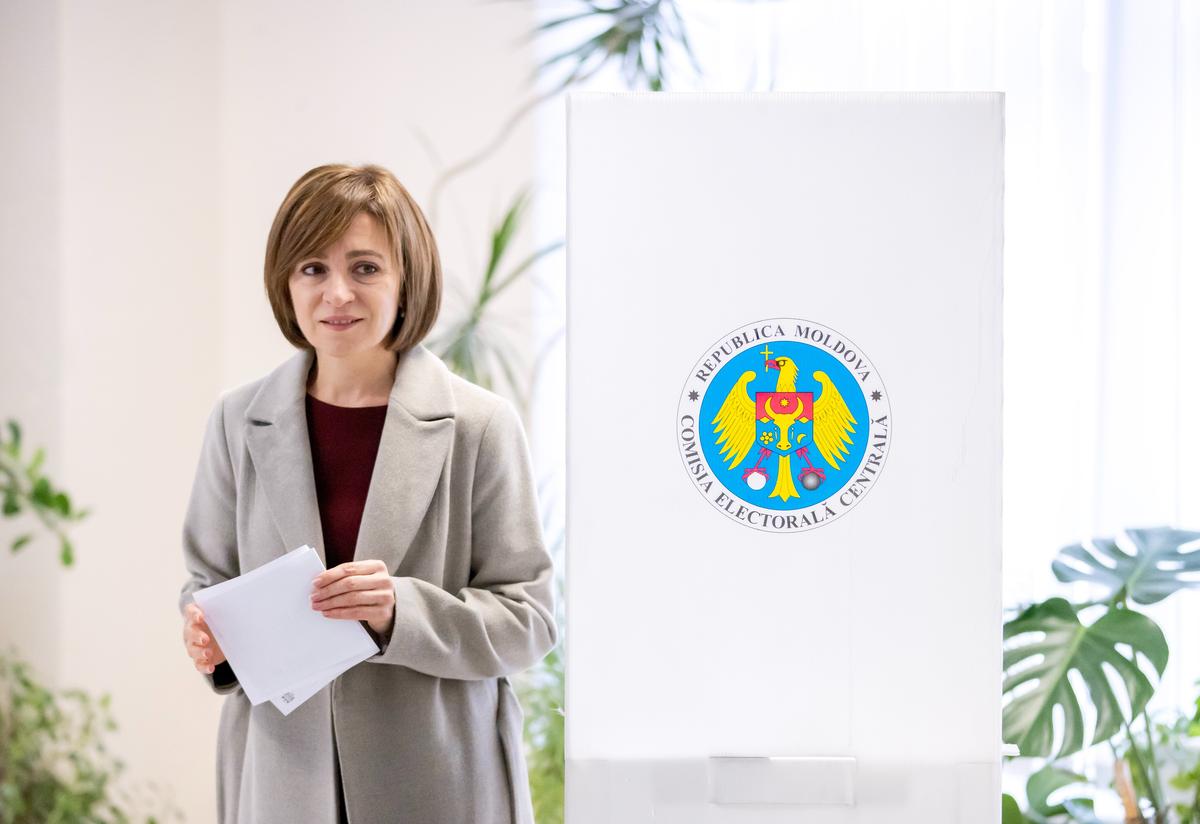
Moldovan President Maia Sandu votes at poling station in Chisinau, Moldova, 20 October 2024. Photo: EPA-EFE/DUMITRU DORU
Moldovans headed to the polls on Sunday to vote in the country’s presidential election, as well as in a referendum on EU membership that is likely to have far-reaching implications for the country’s future amid accusations of Russian interference.
Incumbent President Maia Sandu, who is known for her pro-Western platform and who has led the campaign for the country’s accession to the EU, is running for a second term in office as leader of the Party of Action and Solidarity (PAS).
Ten other candidates are hoping to unseat the head of state, with Sandu’s closest rivals including former prosecutor general Alexandr Stoianoglo — who has the backing of the pro-Russian Party of Socialists, Moldova’s largest opposition party — and Renato Usatîi, the former mayor of the country’s second-largest city Bălți.
Recent opinion polls suggest Sandu is the clear favourite to win the race, with a predicted 36% of votes, followed by Stoianoglo, who is forecast to win a 10% vote share. However, unless one candidate wins over 50% of the vote in the first round, a run-off election will be held on 3 November, which is likely to pit Sandu against Stoianoglo.
The referendum on Moldova’s prospective EU membership asks citizens if they support amendments to the republic’s constitution that would legally enshrine its future accession to the EU. The referendum requires a turnout of at least one-third of voters to be deemed valid.
Having encouraged voters to “come together … to secure Moldova’s rightful place in the European family” after campaigning closed on Friday, Sandu on Sunday called on Moldovans to take part in an election she said would “determine our fate for decades to come”.
An opinion poll carried out by IRI in June found that 53% of Moldovans planned to vote in favour of EU membership in the referendum, though the survey did not include residents of the breakaway region of Transnistria, which is run by an unrecognised Moscow-backed government and is home to around one fifth of Moldova’s total population, including a sizeable ethnic Russian minority.
The US, UK and Canada have all accused Russia of conducting “subversive activity and electoral interference” in the run-up to Sunday’s vote. In a joint statement issued in June, they said that Moscow was spreading “disinformation and propaganda” to “foment negative public perceptions” of Sandu and that it would “incite protests in Moldova should a pro-Russia candidate not win” the presidential election.
